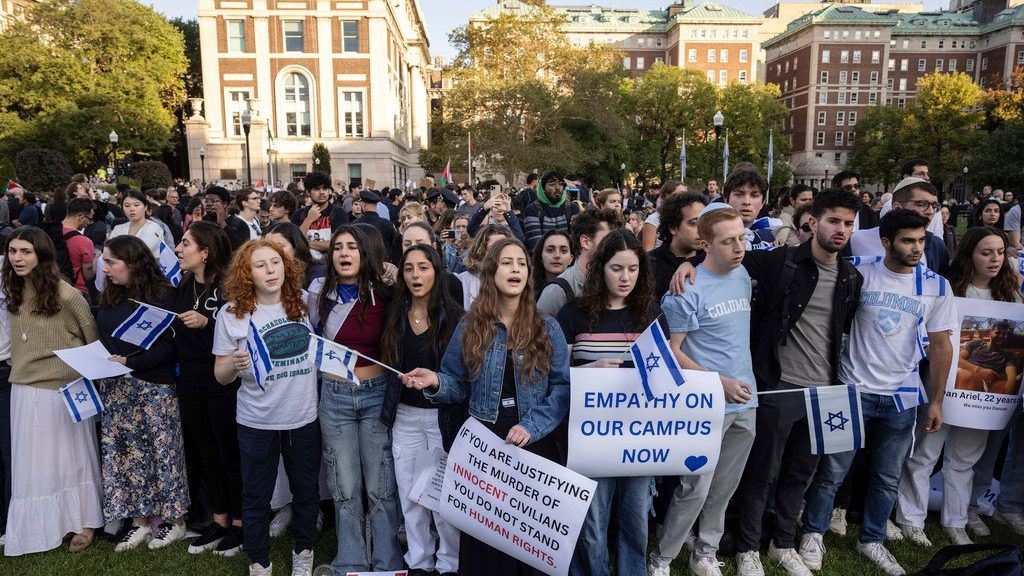The war between Israel and Hamas has brought to the surface a deep schism on American college campuses among those offering their support to ever-fracturing, ever-fraught political conversation, leaving the federal government to keep up with school needs.
Gatherings and protests are near-daily occurrences on campuses around the country, leading to suspensions, arrests and student organizations being banned from campus.
At Cornell University, student was arrested for allegedly posting online threats against Jewish students. A University of Massachusetts student was arrested after allegedly punching a Jewish student and spitting on an Israeli flag at a demonstration. At Stanford, an Arab Muslim student was hit by a car in a case being investigated as a hate crime.
On Tuesday, in response to the “alarming rise” of reported antisemitic and Islamophobic incidents at schools and on college campuses, the White House announced new resources and actions intended to protect students, foster safe learning environments and engage school and university leaders.
Agencies across the federal government, including the departments of Justice, Homeland Security, Education and Agriculture are all taking charge in various areas as part of the administration’s borad push against religious, ethnic and national bigotry and hate.
The Biden administration announced an updated FBI hate crime threat response guide, which is intended to inform people on what to do if they receive a threat.
The Department of Education announced new collections of resources — including fact sheets, guidelines for respecting religious diversity, information on behaviors that could violate federal protections, and more — for preschool through high school, as well as post-secondary institutions; and a planned webinar series to develop and share strategies intended to prevent and respond to hate-based harassment.
Education Department leaders will also host listening sessions with school leaders to talk about keeping students safe amid the Israel-Hamas war. The Department of Agriculture is stepping in to offer a webinar and share support on rural college campuses as well.
The Department of Education has also released letters to institutions reminding them of legal obligations under Title VI of the Civil Rights Act prohibiting discrimination on race, color or national origin.
The DOJ and Homeland Security both have reached out to campus law enforcement to talk about the existing threat environment, and DHS is providing resources to campuses through its Cybersecurity and Infrastructure Security Agency. And on Oct. 30, DOJ announced plans to award more than $38 million in grants to support investigating and prosecuting hate crimes and increase hate crime reporting.
As places that encourage intellectual debate, it isn’t surprising that colleges have seen heated conflict, Jonathan Fansmith, a senior vice president for the American Council on Education, an association of university presidents, told the Associated Press. But when different factions disagree about what crosses the line between free speech and abuse, it puts colleges in a difficult place, he said.
“Everyone should be incredibly sympathetic to Jewish students who feel under threat, and the alarming rise in antisemitic actions is something college universities take very seriously,” Fansmith said. “But they have a requirement, a responsibility under the law as well, to balance the free speech rights of people who may disagree, who may have critiques that they find disagreeable or dislike. And finding that line is very, very difficult.”
The Associated Press contributed to this report.



